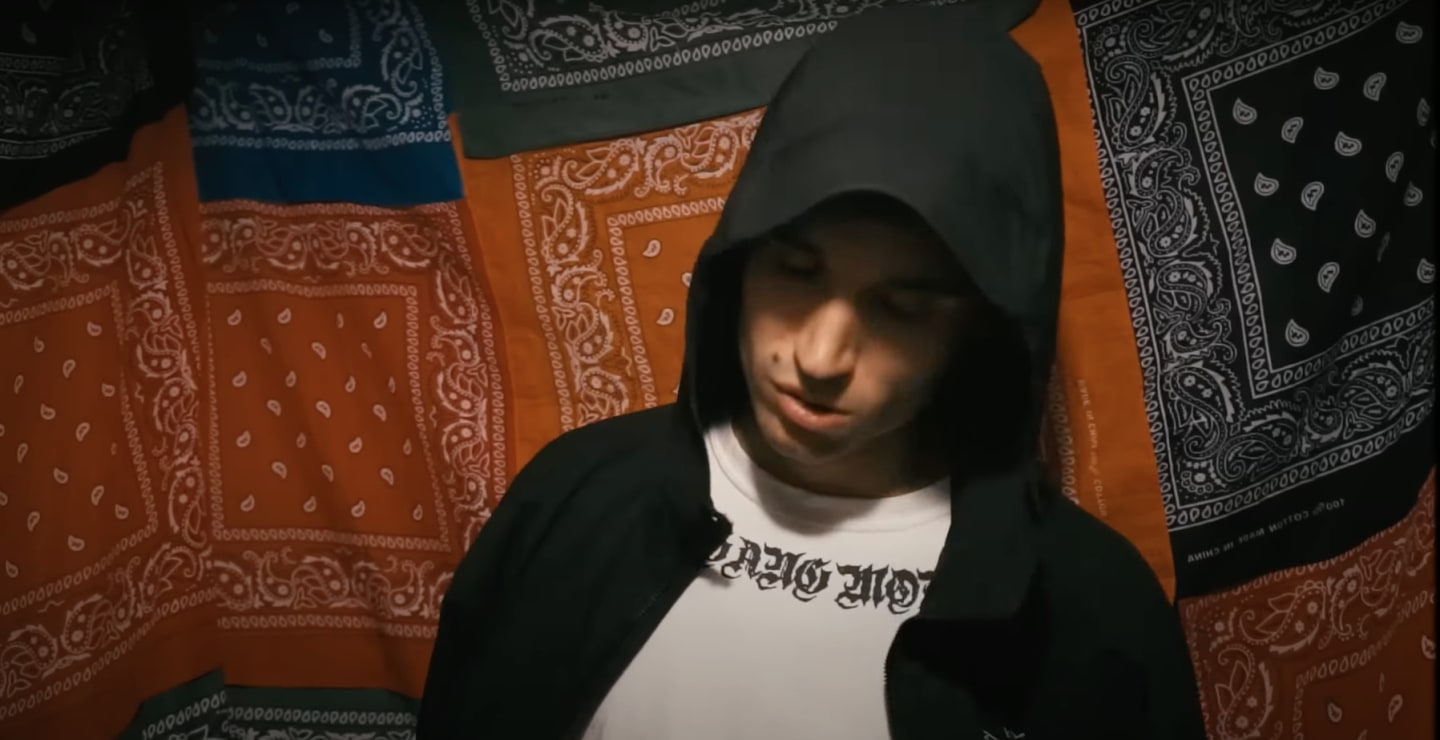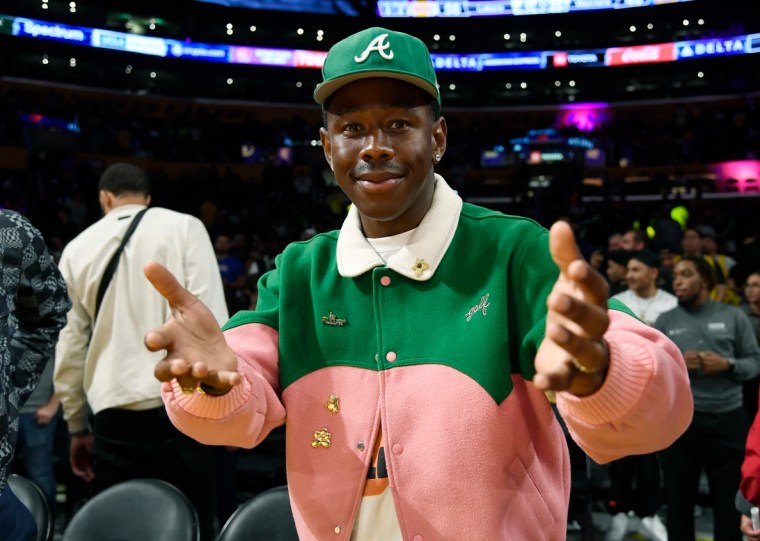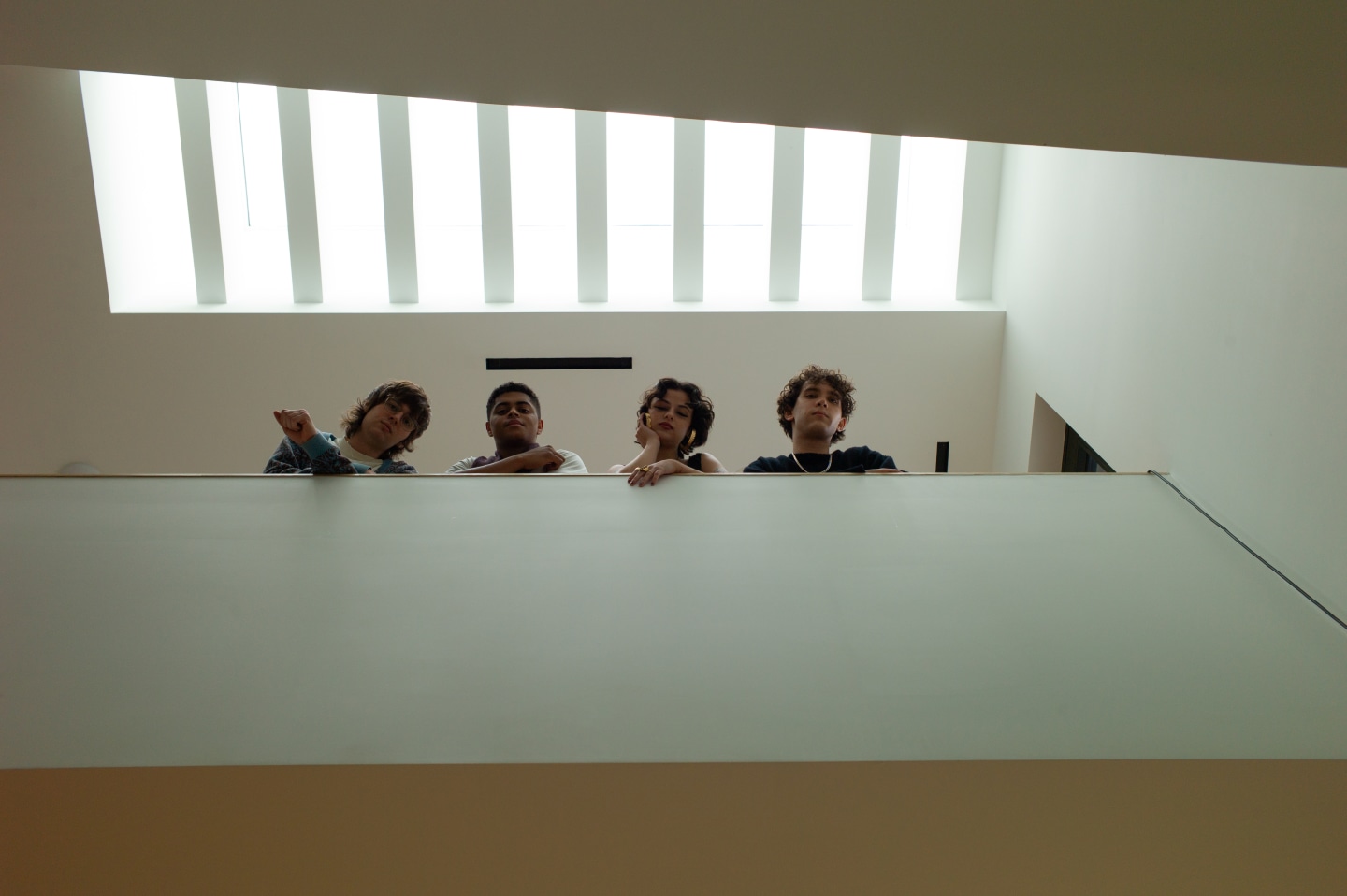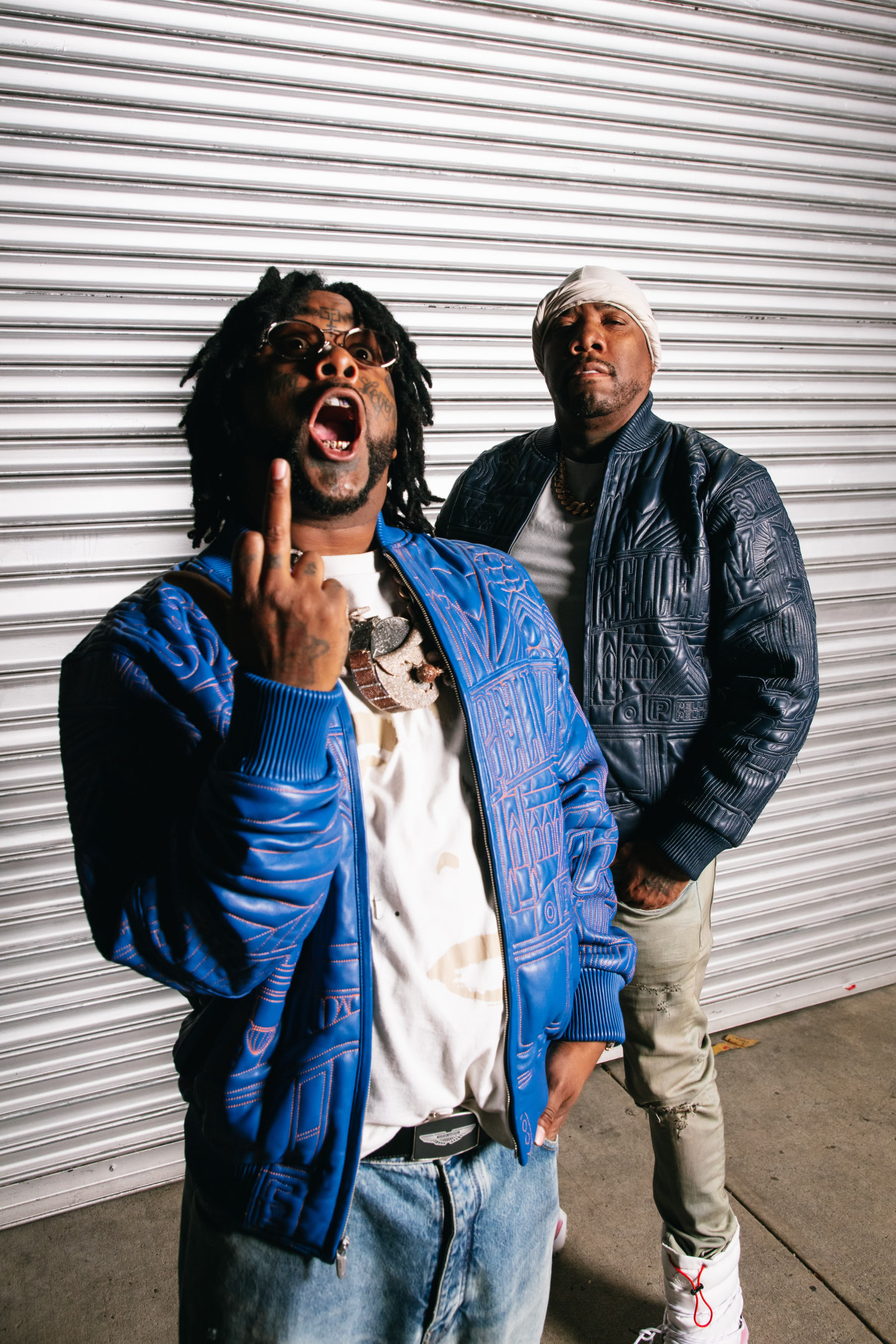Serane in the “Pardonne Moi” video
Rap Column is a column about rap music by Vivian Medithi and Nadine Smith for The FADER.
For the past month, I have been obsessed with “Ig” by Serane. It’s a charmingly carefree ditty about fans Instagramming pics of the rapper “because [his] gang is so icy” over a perc40 beat that ties a woozy topline to annihilatory 808s. Serane meets the colossal instrumental with a swerving hook that foregrounds his singsong delivery: “Plus mon cœur se serre et plus le time go by/Elle voulait quе je stay, mais je fais que fly by.” Although the Parisian MC raps almost exclusively in French, his sound is all Atlanta — more specifically, plugg, the R&B-influenced subgenre of trap that birthed Playboi Carti.
Serane, born Nahuel Serrano, graduated from teenage streetwear influencer to modeling for Raf Simons and Yohji Yamamoto before he started making music at the end of 2019. Encouraged by his friends, the half-French, half-Argentinian MC began recording music more regularly. “I really started fucking with Plugg music when I first heard Playboi Carti’s singles produced by MexikoDro,” Serane explained in a 2021 interview. “Those songs really changed my life and influenced my music heavily… I wanted to make music that I would listen to on my own time but in French.”
His summer 2020 mixtape Prise Musique carefully traces the footsteps of his predecessors. The project features standout production work by fellow Parisians Milanezie, Voidd, and TTdaFool, but a bevy of American cosigns — including key plugg producers CashCache, StupidXool, and MexikoDro — made tracks like “Pardonne Moi” and “Slimetalk” deliriously potent. Serane’s soft-spoken flows, bitten with love from DMV rappers like Goonew, convey affable, unflappable cool; combined with his penchant for wispy melodies, they make a natural fit for vibe-forward plugg producers seeking to immerse the listener.
Serane first caught my attention around the end of 2020 off the strength of Serane meets CashCache, a seven-song EP that fused his ploddingly muttered flows and CashCache’s twinkling hypnotic production to blissfully sedate effect. There’s the stoned murmur of “Pressure,” an ode to sparking up Russian cream Backwoods, and the plinking music box of Voidd-coproduction “Forêt.” On “Food,” Serane’s fluttery melodies burble over intense 808s before BoofPaxkMooky swoops in with a zigzag verse that ricochets all over the beat. Just a couple short months later, a clip of loosie “Money Dance” made the rounds on social media in the DMV, prompting a nod from Goonew; by the time the two rappers linked up for “Homicide Prise” in 2022, Serane would already have released another three mixtapes featuring collaborations with Diego Money, Summrs, and FLEE.
Last year, Serane made a splashy debut in NYC on the heels of Surf Gang collab SGPM; despite the minor buzz, that tape failed to fully cement the French rapper on American shores. Last month’s S.E.R. doesn’t seem any more likely to propel Serane up the charts, but it widens the envelope of his sound and features some of his catchiest music to date.
The biggest change on S.E.R. has to be the undeniable influence of Chief Keef. As a plugg rapper, Serane is technically one of the Chicago icon’s sonic grandchildren, but here he goes back to the source, drawing on the sinister DAW textures of Bang 3. A handful of deviously bombastic tracks weaves through the album, replete with synthetic horns, minor key theremins and stuttering hi-hats. In particular “Sans toi” and opener “Sharks” feel like overt homage, a clear deviation from Serane’s typically languid modus operandi. The much more immediate “Glory” sticks the landing with far more aplomb, thanks to a locked-in, ever-escalating vocal take.
Elsewhere, the plugg sounds that have become Serane’s bread and butter are further refined. There’s the Goyxrd-produced “Close 2 me,” where he confesses he needs the girl who “wants to sip me like a smoothie,” and the dreamily smooth “For U,” where he reminds his girlfriend “you know I’m crazy about you.” His lyrical skill has accelerated as well, whether rapid-fire spitting over the glass-shattering “Ciel” or falsetto crooning over the sublimating synths of “Myself.”
Serane’s music draws on some of my favorite hip-hop scenes — not just the ethereal grooves of plugg and more straightforward Atlantean trap, but also the harder-nosed sounds of DMV rap cultivated by Sparkheem, Mannyvelli and SpizzleDoe. He isn’t shy about his inspirations or influences either — oftentimes, the credits for his releases feel like a peek at his personal playlists. That’s especially true of 2022’s Prise World, where Serane smartly cedes ground on the undulating “Story” to let Slimesito steal the show and remains unperturbed by a strobing Surf Gang beat on “Location.” Even if Serane’s music isn’t particularly formally inventive, his songs go beyond homage by tapping the originators of the sounds he wants to emulate. They also reflect a fairly personal, idiosyncratic kind of SoundCloud scholarship — although plugg has had a minor renaissance in recent years, Serene hopped on the sound just before the upswing, and his cultural exchange with the DMV belies the scene’s lack of press coverage.
Rapping in French also helps to distinguish Serane’s sound, in more ways than one. There’s the local competition — according to Serane, much of France’s rap scene is oriented around drill and street rap, leaving the lane for Francophone plugg wide open (although that’s no guarantee of success). Another differentiator: the prosody of French (how the words of the language flow together) is markedly different from English. As a Romance language, French is syllable-timed, meaning every syllable takes the same time to pronounce. By comparison, in stress-timed languages like English and other Germanic languages, syllables can be shorter or longer depending on which syllables are stressed and unstressed. That contrast between stressed and unstressed syllables contributes to the singsong quality of Shakespeare as well as the rapid-fire triplets of the Migos flow.
In fact, this extends beyond English to other international outposts of the plugg sound, like Russia (Slavic languages are also stress-timed) and Brazil (Brazilian Portuguese is a little of both). Rapping in syllable-timed French gives Serane’s bars a more fluid quality, lyrics spilling over the divisions between measures; you can hear something similar in the Spanish language raps of Bb trickz. The lack of phonetic emphasis smudges the border between vocals and instrumental, making for dreamier harmonies and more jarring contrast when he occasionally slips into English.
Take “Pardonne Moi,” where an opening verse in French is studded with English nouns: Balenciaga, good gas, “mes slimes.” The slang and allusions feel like the natural lingua franca of plugg — being on the same page priority-wise is far more important than speaking the same language. Syllables are stressed even harder in the second verse, which opens “J’graille avec ma bad bitch de Mexico/Elle fait la vaisselle, wet pussy lavabo” (“I’m eating with my bad bitch in Mexico/She does the dishes, pussy wet [like a] sink”). The English pops out at the listener, keeping their attention as Serane slinks across the beat, feeling like Ralo on a private jet and Young Scooter when he hits a finesse. In the music video, Serane torches a blunt in a small kitchen packed with a handful of his friends and dances beneath the streetlights, grinning wide. It was filmed in Paris but it could have been anywhere.




